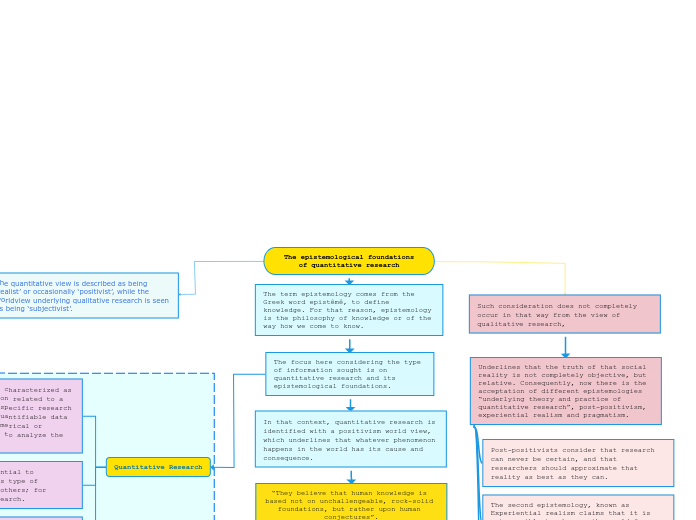The epistemological foundations of quantitative research
The term epistemology comes from the Greek word epistêmê, to define knowledge. For that reason, epistemology is the philosophy of knowledge or of the way how we come to know.
The focus here considering the type of information sought is on quantitative research and its epistemological foundations.
Quantitative Research
Quantitative research is characterized as a systematic investigation related to a social phenomenon and a specific research methodology collecting quantifiable data and uses statistical, numerical or computational techniques to analyze the information collected.
That is why is very essential to emphasize what makes this type of research different from others; for example, qualitative research.
The results are based on bigger sample sizes that are representative of the study group.
In that context, quantitative research is identified with a positivism world view, which underlines that whatever phenomenon happens in the world has its cause and consequence.
“They believe that human knowledge is based not on unchallengeable, rock-solid foundations, but rather upon human conjectures”.
The quantitative view is described as being ‘realist’ or occasionally ‘positivist’, while the worldview underlying qualitative research is seen as being ‘subjectivist’.
Such consideration does not completely occur in that way from the view of qualitative research,
Underlines that the truth of that social reality is not completely objective, but relative. Consequently, now there is the acceptation of different epistemologies “underlying theory and practice of quantitative research”, post-positivism, experiential realism and pragmatism.
Post-positivists consider that research can never be certain, and that researchers should approximate that reality as best as they can.
The second epistemology, known as Experiential realism claims that it is not possible to observe the world from an objective way only, for the reason that the own perception itself influences somehow on what is being observed.
And the third epistemology, identified as Pragmatism, recommends a mixed methods approach relating quantitative and qualitative methods as the most suitable manner to observe the world depending on what needs to be discovered, which will determine on the type of questions to be asked, too.
